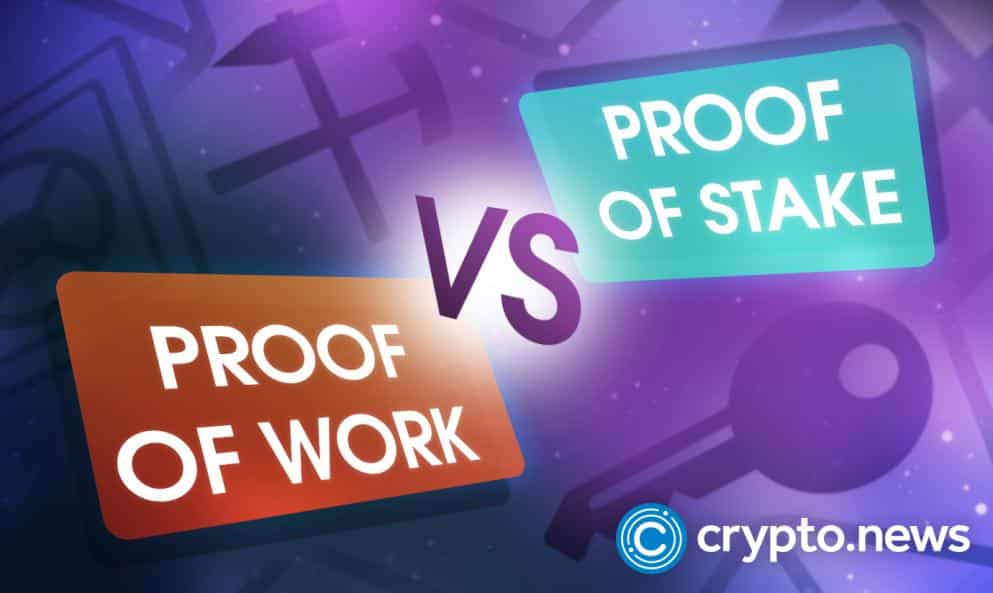Ethereum Merge Aftermath: Can Switching to PoS Reduce Crypto Industry’s Emissions?

A few days ago, the Ethereum network finally switched to the much-heralded proof-of-stake (PoS) consensus mechanism in what is popularly known as “The Merge.” In PoS, validators stake ether (ETH) as collateral in an Ethereum smart contract. The validator is then charged with ensuring that new blocks propagated across the network are valid. The ETH collateral put up by validators is meant to keep them in check, as it can be destroyed if the validator is found to be dishonest.
The Advantages of PoS
PoS comes with a few improvements over the much-criticized proof-of-work (PoW) mechanism used earlier. It lowers the barrier to mining by reducing the need for sophisticated and expensive hardware. It also enhances decentralization by enabling the creation of more nodes.
PoS makes 51% style attacks less likely because the economic penalties for misbehavior make such attacks significantly more expensive than PoW attacks. And if a 51% style attack succeeds, the community can quickly resort to the social recovery of an honest chain.
However, PoS’ biggest draw is that it offers better energy efficiency since computations require significantly less electricity. ETH developers estimate that PoS will slash Ethereum’s energy consumption by as much as 99.9%, making the new system at least 2,000 times more efficient than PoW. It is estimated that the massive cutback in the energy used on the ETH blockchain could lead to a 0.2% reduction in global electricity consumption.
Before switching to PoS, Ethereum used about 5GW of power continuously, which worked out to 44.49TWh per year. That amount was equivalent to what three medium-sized nuclear power stations produced and what 6.5 million average homes consumed.
The Drawbacks of PoW
Proof-of-work was the first consensus protocol used on blockchains. While Ethereum has moved away from it, the mechanism is still used to secure Bitcoin (BTC), Litecoin (LTC), Dogecoin (DOGE), and several other networks and cryptocurrencies.
But as blockchain and cryptocurrency grow more popular, the disadvantages of PoW have become more apparent. For instance, PoW-dependent blockchains are often inefficient, with slow transaction speeds and expensive fees. Additionally, mining on such blockchains requires expensive rigs, which makes it hard for most people to enter the sector.
However, PoW’s biggest drawback is the excessive amounts of energy it consumes and the carbon footprint it creates. When the Ethereum network was powered by PoW, it produced about 11 million tons of CO2 annually, the same as a medium-sized country.
The biggest culprit in PoW-induced power consumption is the Bitcoin network. Conservative estimates indicate that BTC continuously uses about 10GW of electricity, which translates to about 88TWh per year, nearly twice the amount expended by Ethereum. In practical terms, BTC’s energy consumption is equivalent to what six nuclear power stations produce and 13 million homes consume. In essence, BTC uses 15,000–20,000 times more energy than most PoS blockchains.
Along with the power consumed, BTC produces nearly 23 million metric tons of CO2. Concerns over BTC’s negative environmental impact prompted electric car manufacturer Tesla to suspend the use of the cryptocurrency as payment for its vehicles.
Is PoS the Future of Blockchain?
There’s a growing consciousness about climate change among consumers. Ethereum’s lower energy use and smaller carbon footprint mean the blockchain can benefit from its much-improved “green credentials.”
Eco-friendly PoS projects such as Algorand (ALGO) are already reaping the benefits of going green. The platform uses a sustainability oracle to certify its on-chain carbon footprint. Additionally, the blockchain holds a comparable amount of carbon credit as an Algorand Standard Asset (ASA) in a green treasury to keep the protocol carbon-negative.
ALGO recently signed a lucrative partnership with FIFA to become its official blockchain. In addition, the platform has teamed up with El Salvador to build the country’s blockchain infrastructure. Such alliances will give ALGO and like-minded environmentally conscious blockchain projects greater exposure, access, and acceptance by many merchants worldwide.
















